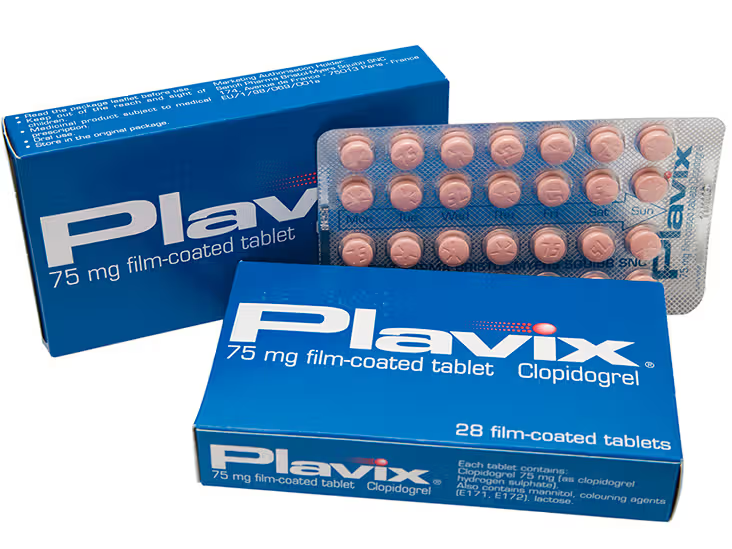Redefining Healing: How Altering Drug Targets Revolutionizes Receptor and Enzyme Efficacy
“The art of healing comes from nature, not from the physician. Therefore, the physician must start from nature, with an open mind.” – Paracelsus
The field of medicine has always relied on a deep understanding of nature and the human body to develop effective treatments. In recent years, the integration of artificial intelligence (AI) has redefined the way we approach drug development and precision medicine. By altering drug targets and leveraging the power of AI technologies, researchers and scientists are revolutionizing the efficacy of receptors and enzymes, leading to groundbreaking advancements in therapeutic interventions.
AI algorithms, such as machine learning and deep learning, have become invaluable tools in analyzing complex biological pathways and molecular targets. With their ability to handle vast volumes of data, these technologies have unleashed a new era of pharmacological manipulation. By altering drug targets, researchers can enhance the specificity and efficiency of drugs, maximizing their therapeutic potential. This paradigm shift in drug development strategies allows for a more precise and personalized approach, tailored to the unique needs of patients.
In this article, we will explore the role of AI in altering drug targets and how it revolutionizes receptor and enzyme efficacy. From pharmacogenomics to drug repurposing, AI is reshaping the future of drug discovery, development, and precision medicine. We will delve into the impact of AI in various aspects of the pharmaceutical industry and discuss the challenges and limitations it faces. Furthermore, we will examine the integration of AI and human expertise to ensure ethical decision-making and patient-centered care.
Join us on this journey of exploration as we uncover the transformative power of AI in redefining healing and shaping the future of healthcare.

Key Takeaways:
- AI technologies are revolutionizing drug development by altering drug targets and enhancing receptor and enzyme efficacy.
- The integration of AI in precision medicine enables personalized and targeted therapeutic interventions.
- AI-driven strategies, such as pharmacogenomics and drug repurposing, are accelerating the discovery of innovative treatments.
- AI improves pharmaceutical productivity, clinical trials, and regulatory processes, paving the way for better healthcare outcomes.
- A collaborative approach that combines AI and human expertise ensures informed decision-making and ethical practices in drug development.
The Impact of AI in Drug Discovery and Development
AI has revolutionized the pharmaceutical sector by integrating with drug discovery and development, transforming the way drugs are discovered and developed. AI algorithms, including deep learning and molecular fingerprint recognition, have accelerated the drug development process, making it more efficient and cost-effective.
AI plays a crucial role in various stages of drug development, such as rational drug design, decision-making, drug screening, and optimization of drug structures. By harnessing the power of AI, researchers can analyze large datasets and predict the efficacy and adverse effects of drug candidates, facilitating informed decision-making.
Rational Drug Design
Rational drug design involves the use of AI algorithms to analyze biological pathways and molecular targets, enabling the identification of potential drug targets and the design of drugs with enhanced specificity. AI helps researchers understand the underlying mechanisms of diseases and design drugs that specifically interact with the desired molecular targets, increasing the chances of therapeutic success.
Drug Screening and Optimization
AI algorithms are crucial in drug screening, analyzing vast libraries of compounds to identify potential drug candidates with the desired properties. Through machine learning, AI can learn from known drug-target interactions and predict the efficacy and safety profiles of new compounds, reducing the time-consuming and expensive process of synthesizing and testing each compound.
Molecular fingerprint recognition, another AI technique, plays a critical role in identifying chemical patterns and molecular features associated with drug activity. By analyzing molecular fingerprints, AI algorithms can prioritize drug candidates with high binding affinity and selectivity, improving the efficiency of the drug screening process.
Improving Precision Medicine
A key benefit of AI in drug discovery and development is its ability to facilitate precision medicine. AI can analyze large genomic and clinical datasets, identifying genetic variations that influence drug responses and tailoring treatments to individual patients. This personalized approach optimizes therapeutic interventions, improves treatment outcomes, and reduces the risk of adverse drug reactions.
The Future of AI in Drug Discovery and Development
As AI continues to advance, its impact on drug discovery and development is expected to grow exponentially. Predictive modeling using AI algorithms will enable researchers to predict the safety, efficacy, and potential adverse effects of drug candidates with greater accuracy and reliability. This modeling can guide decision-making processes throughout the drug development pipeline, making it more efficient and cost-effective.
In conclusion, AI has redefined the landscape of drug discovery and development. Through its integration into various stages of the process, AI’s capabilities in pharmacological manipulation, drug design, molecular fingerprint recognition, and drug screening have accelerated the development of innovative therapies. With further advancements, AI will continue to shape the future of precision medicine, revolutionizing healthcare and improving patient outcomes.
AI’s Role in Pharmacogenomics and Precision Medicine
Pharmacogenomics is an emerging field in medicine that aims to personalize treatments based on individual genetic characteristics. By analyzing vast amounts of genomic data, AI has shown promising applications in pharmacogenomics, enabling the prediction of how individuals will respond to specific drugs. This predictive modeling capability is revolutionizing the field, optimizing therapeutic interventions and reducing the risk of adverse drug reactions.
AI’s role in pharmacogenomics is crucial for personalized medicine. It assists in developing treatment plans tailored to individual patients by identifying genetic variations that influence drug responses. With AI’s assistance, healthcare professionals can select the most effective drugs for each patient, increasing treatment efficacy and reducing the probability of adverse effects.
A key advantage of AI in pharmacogenomics is its ability to handle complex genomic data analysis. AI algorithms can analyze massive datasets, identifying patterns and predicting drug responses based on genetic variants. This predictive modeling empowers clinicians with invaluable insights, guiding them in making informed decisions regarding personalized treatments.
Moreover, AI’s predictive modeling not only aids in drug selection but also contributes to the development of more targeted therapeutic interventions. By understanding how genetics influence drug responses, AI enables scientists to identify potential molecular targets for drug development. This knowledge paves the way for the creation of innovative treatments that precisely address underlying genetic factors.
Benefits of AI in Pharmacogenomics:
- Predictive modeling of drug responses based on genetic variations
- Personalized treatment plans tailored to individual patients
- Selection of the most effective drugs, reducing adverse reactions
- Identification of potential molecular targets for innovative drug development
AI in pharmacogenomics is a transformative force in precision medicine, revolutionizing how healthcare professionals approach patient care. By leveraging AI’s capabilities, personalized medicine becomes a reality, optimizing therapeutic interventions and improving patient outcomes.
| Applications of AI in Pharmacogenomics | Benefits |
|---|---|
| Analysis of genetic data to predict drug responses | More effective drug selection and personalized treatment |
| Identification of genetic markers for adverse drug reactions | Reduced risk of adverse effects |
| Prediction of drug-drug interactions based on genetic profiles | Enhanced medication safety |
AI’s role in pharmacogenomics extends beyond personalized medicine. It has the potential to accelerate drug discovery and development by guiding researchers toward novel therapeutic interventions. Through continuous advancements in AI technology and its integration with healthcare, the future of pharmacogenomics holds tremendous promise in transforming patient care and therapeutic innovation.
AI-Driven Strategies for Drug Repurposing
Drug repurposing, also known as drug repositioning, involves finding new therapeutic applications for existing drugs. AI has become an indispensable tool in drug repurposing by analyzing large datasets and identifying potential interactions between existing drug molecules and new therapeutic targets. Computational modeling and AI algorithms can predict the efficacy and safety of repurposed drugs, reducing the time and cost of traditional drug development. AI-driven strategies for drug repurposing have the potential to accelerate the availability of new treatments for various diseases, providing more options for patients and improving healthcare outcomes.
Advantages of AI-Driven Drug Repurposing
AI offers several advantages in the process of drug repurposing:
- Efficient analysis: AI algorithms can analyze vast amounts of data from diverse sources, including clinical trials, electronic health records, and scientific literature.
- Identification of potential interactions: By analyzing this data, AI can identify potential interactions between existing drugs and new therapeutic targets, uncovering novel treatment possibilities.
- Improved prediction accuracy: Computational modeling and AI algorithms can predict the efficacy and safety of repurposed drugs, enabling researchers to prioritize the most promising candidates.
- Cost and time savings: By leveraging AI technologies, researchers can reduce the time and cost associated with drug development, as repurposed drugs have already undergone safety testing in previous applications.
“AI-driven drug repurposing opens up a world of possibilities for finding new uses for existing drugs. By harnessing the power of computational modeling and AI algorithms, we can accelerate the discovery of effective treatments and bring them to patients more quickly.”
AI in drug repurposing has already demonstrated promising results. For example, in a recent study, researchers used computational modeling and AI algorithms to identify an existing anti-cancer drug that showed potential as a treatment for Alzheimer’s disease. This discovery would have been challenging using traditional methods and highlights the transformative potential of AI in the field of drug repurposing.
AI-Driven Drug Repurposing in Action
To illustrate the practical benefits of AI in drug repurposing, let’s consider a hypothetical scenario:
| Existing Drug | Therapeutic Target | Predicted Efficacy | Safety Profile |
|---|---|---|---|
| Drug A | Autoimmune diseases | High | Well-tolerated |
| Drug B | Cancer | Medium | Manageable side effects |
| Drug C | Cardiovascular diseases | Low | Significant side effects |
In this scenario, AI-powered computational modeling has identified three existing drugs with the potential for repurposing. Drug A shows high predicted efficacy and a favorable safety profile for autoimmune diseases, making it a promising candidate for further exploration. Drug B demonstrates medium predicted efficacy and manageable side effects for cancer treatment, warranting additional investigation. However, drug C exhibits low predicted efficacy and significant side effects for cardiovascular diseases, making it less suitable for repurposing in this context.
By utilizing AI-driven strategies for drug repurposing, researchers can efficiently identify these repurposing opportunities, accelerating the development of new treatments and expanding the therapeutic options available to patients.
AI in Improving Pharmaceutical Productivity and Manufacturing
Artificial Intelligence (AI) is revolutionizing the pharmaceutical industry by optimizing various aspects of productivity and manufacturing processes. With its advanced algorithms and powerful analytical capabilities, AI is transforming the way pharmaceutical companies manage their supply chain, implement robotics, improve quality control, and perform predictive maintenance.
Optimizing Supply Chain Management
AI plays a crucial role in optimizing supply chain management in the pharmaceutical industry. By analyzing large volumes of data from different stages of the manufacturing process, AI algorithms can identify bottlenecks, streamline operations, and ensure the efficient flow of raw materials and finished products. This leads to improved inventory management, reduced costs, and timely delivery of medications to patients.
Implementing AI-powered supply chain management systems also enables pharmaceutical companies to respond quickly to changing market demands, optimize production schedules, and minimize waste. By leveraging AI’s predictive capabilities, companies can make data-driven decisions and ensure the availability of medications when and where they are needed most.
Implementing Robotics for Efficiency
Robotics is another area where AI is driving significant improvements in pharmaceutical manufacturing. AI algorithms can analyze workflow processes and identify tasks that can be efficiently automated using robotics. By automating repetitive and labor-intensive tasks, pharmaceutical companies can increase productivity, reduce errors, and improve overall operational efficiency.
“AI-powered robotics enable pharmaceutical companies to achieve greater precision and speed in manufacturing processes, leading to higher output and improved product quality.”
Robotic systems can handle delicate operations, such as medication formulation and packaging, with incredible precision, minimizing the risk of contamination and ensuring compliance with strict quality standards. Additionally, AI-driven robotics can enhance workplace safety by handling hazardous materials and performing tasks in environments that may be unsuitable for human workers.
Improving Quality Control with AI
Ensuring the highest quality of medications is of paramount importance in the pharmaceutical industry. With AI, companies can enhance their quality control processes and reduce the risk of defective or substandard products reaching the market. AI algorithms can analyze manufacturing data, sensor readings, and real-time quality metrics to identify potential issues and deviations from established standards.
By continuously monitoring and analyzing production data, AI-driven quality control systems can detect anomalies, perform root cause analysis, and proactively implement corrective measures. This not only improves the overall quality of medications but also minimizes the need for costly recalls and adverse events, safeguarding patient health and brand reputation.
Predictive Maintenance for Reliable Operations
Unplanned equipment downtime can have severe consequences in pharmaceutical manufacturing, leading to production delays, increased costs, and potential disruptions in the supply of essential medications. AI’s predictive maintenance capabilities offer a proactive approach to equipment management, enabling pharmaceutical companies to anticipate and prevent equipment failures before they occur.
AI algorithms can analyze historical data, sensor readings, and machine learning models to identify patterns and indicators of potential equipment failure. By monitoring performance metrics in real-time, AI-powered systems can detect anomalies, predict maintenance needs, and schedule maintenance activities during planned downtime. This not only minimizes the risk of unexpected disruptions but also ensures reliable and uninterrupted production, leading to improved pharmaceutical productivity and enhanced patient care.
Implementing AI in pharmaceutical productivity and manufacturing processes offers a range of benefits, including improved supply chain management, optimized workflow through robotics, enhanced quality control, and reliable operations through predictive maintenance. The integration of AI technologies in the pharmaceutical industry is transforming the way medications are produced, ensuring the delivery of high-quality products to patients worldwide.
AI in Clinical Trials and Drug Development
Clinical trials are a crucial and essential part of the drug development process. However, they can often be time-consuming, expensive, and face challenges in patient recruitment, data analysis, and adverse event monitoring. This is where the integration of Artificial Intelligence (AI) can revolutionize clinical trials and transform the landscape of drug development.
Patient Recruitment: AI algorithms are capable of analyzing vast amounts of patient data, allowing for the identification of potential candidates for clinical trials. By analyzing various factors such as demographic information, medical history, and genetic profiles, AI can streamline the patient recruitment process, ensuring faster enrollment and more diverse patient populations.
Data Analysis: The analysis of complex clinical trial data is a laborious and time-consuming process. AI-powered data analysis tools can handle large volumes of data and detect patterns that may be overlooked by manual analysis. These tools enable researchers to gain valuable insights from clinical trial data, accelerating the decision-making process and improving the overall efficiency of drug development.
Predictive Modeling: AI can be utilized to predict outcomes and assess the efficacy of drug candidates based on clinical trial data. By leveraging predictive modeling techniques, AI algorithms can provide valuable insights into the effectiveness and potential risks associated with specific treatments. This allows for more informed decision-making during drug development, optimizing the chances of success.
Adverse Event Monitoring: Ensuring patient safety is of utmost importance in clinical trials. AI-powered systems can continuously monitor adverse events in real-time, alerting researchers to any potential safety concerns. This proactive approach enhances patient safety and enables prompt intervention, ultimately improving the overall quality and reliability of clinical trial outcomes.
“The integration of AI in clinical trials has the potential to revolutionize patient recruitment, data analysis, and adverse event monitoring, creating more efficient and effective drug development processes.”
This shift towards utilizing AI in clinical trials and drug development has the potential to transform the pharmaceutical industry and bring about significant advancements in precision medicine. By harnessing the power of AI, researchers can accelerate the drug development process, improve patient outcomes, and ultimately reshape the future of healthcare.
| Benefit of AI in Clinical Trials and Drug Development | Description |
|---|---|
| Patient Recruitment | AI algorithms can analyze patient data to identify potential candidates for clinical trials, resulting in faster recruitment and more diverse patient populations. |
| Data Analysis | AI-powered tools can handle large volumes of data and detect patterns that may be overlooked by manual analysis, leading to valuable insights in drug development. |
| Predictive Modeling | AI algorithms can predict outcomes and assess the efficacy of drug candidates, aiding in informed decision-making and optimizing the chances of success. |
| Adverse Event Monitoring | AI-powered systems can monitor adverse events in real-time, enhancing patient safety and improving the overall quality of clinical trial outcomes. |
AI and the Future of Drug Development
The future of AI in drug development holds immense potential for revolutionizing the pharmaceutical industry and advancing healthcare. AI’s predictive modeling capabilities and its ability to analyze large datasets will continue to play a vital role in improving therapies and personalized treatments.
By harnessing the power of AI, the pharmaceutical industry can develop more targeted and effective drugs. The use of predictive modeling allows researchers to optimize drug discovery, reducing the time and cost associated with traditional methods. AI-driven approaches also have the potential to revolutionize the identification of new drug targets, leading to enhanced drug discovery and breakthrough medicines.
One of the key benefits of AI in drug development is the ability to personalize treatments. By analyzing vast amounts of data, AI algorithms can provide insights into patient-specific characteristics, allowing for personalized treatment plans. This approach improves patient outcomes and ensures that treatments are tailored to individual needs.
Furthermore, AI’s contribution to drug development goes beyond improved therapies and personalized treatment. The analysis of large datasets can uncover hidden patterns and relationships, leading to a deeper understanding of diseases and their underlying mechanisms. This knowledge can guide researchers in developing innovative treatments that target specific disease pathways.
Accelerating Drug Discovery with AI
The speed and efficiency of drug discovery are critical in addressing healthcare challenges. AI offers the potential to accelerate this process by quickly identifying potential drug candidates through predictive modeling and analysis of large datasets.
AI algorithms can accelerate screening processes by predicting the efficacy and safety of drug candidates. This enables researchers to prioritize the most promising candidates for further development, effectively narrowing down the pool of potential drugs to be tested in clinical trials.
Additionally, AI can enable the repurposing of existing drugs for new therapeutic applications. By analyzing molecular structures and assessing potential interactions with disease targets, AI algorithms can identify existing drugs that may be effective in treating different conditions. This approach saves time and resources by leveraging existing knowledge and clinical data.
Enhancing Drug Discovery Strategies
The integration of AI into drug development strategies holds the promise of significant advancements in the pharmaceutical industry. AI algorithms can analyze vast amounts of data from diverse sources, including genomics, proteomics, and clinical trials, generating valuable insights that enhance drug discovery.
With AI, researchers can gain a comprehensive understanding of diseases and their underlying molecular mechanisms. This knowledge can guide the identification of new drug targets, leading to the development of therapies that were previously unexplored.
Moreover, AI algorithms can optimize the design and synthesis of drug molecules, improving their bioavailability, specificity, and safety profiles. By leveraging AI’s computational power, researchers can explore a vast chemical space and identify novel drug candidates with enhanced therapeutic potential.
In summary, the future of AI in drug development holds immense promise for the pharmaceutical industry. AI’s predictive modeling capabilities, its ability to analyze large datasets, and optimize drug discovery strategies will continue to drive advancements in therapies, personalized treatments, and enhanced drug discovery. By embracing AI as a powerful tool, researchers can unlock new possibilities in drug development, revolutionizing healthcare and improving patient outcomes.
Challenges and Limitations of AI in Drug Development
While AI holds immense potential in revolutionizing drug development, it also encounters a set of challenges and limitations that need careful consideration. These challenges encompass data quality, ethical considerations, and regulatory compliance.
Data Quality
The quality of data used to train AI algorithms is of utmost significance. Inaccurate or incomplete data can lead to biased or unreliable results, affecting the overall effectiveness of AI in drug development. Ensuring the integrity and reliability of data is vital for generating meaningful insights and making informed decisions.
Ethical Considerations
As AI becomes increasingly integrated into drug development processes, ethical considerations must remain at the forefront. Data privacy and the responsible use of AI raise important concerns that must be addressed to protect patients’ trust and rights. Safeguarding patient confidentiality and ensuring transparency in the utilization of AI technologies are critical components for the ethical implementation of AI in drug development.
Regulatory Compliance
The implementation of AI technologies in drug development requires adherence to regulatory standards and guidelines. Establishing comprehensive frameworks is crucial to ensure the transparency, safety, and efficacy of AI-driven strategies. Regulatory compliance plays a pivotal role in maintaining the integrity of drug development processes and ensuring patient safety.
By addressing these challenges and limitations, the pharmaceutical industry can unlock the full potential of AI in drug development. Overcoming data quality issues, prioritizing ethical considerations, and adhering to regulatory frameworks will pave the way for the responsible and impactful utilization of AI technologies.
| Challenges | Considerations |
|---|---|
| Data Quality | Inaccurate or incomplete data can lead to biased or unreliable results. |
| Ethical Considerations | Data privacy and responsible use of AI must be addressed to protect patients’ trust and rights. |
| Regulatory Compliance | Standards and guidelines must be established to ensure transparency, safety, and efficacy of AI-driven strategies. |
The Impact of AI on Pharmacy Practice
AI has the potential to revolutionize pharmacy practice by enhancing medication management, detecting drug-drug interactions, and improving patient counseling. With the use of AI algorithms, pharmacists can analyze patient data, including medication histories and health records, to identify potential drug-drug interactions and suggest alternative treatment options. By leveraging AI-powered systems, personalized medication recommendations can be provided based on individual patient characteristics, leading to improved medication adherence and better patient outcomes.
AI in pharmacy practice also enables pharmacists to offer more effective counseling and education to patients. By utilizing AI tools, pharmacists can optimize treatment plans and provide tailored information, addressing specific patient needs. This enhanced communication helps patients better understand their medications, potential side effects, and the importance of adherence, ultimately leading to increased patient satisfaction and better overall health outcomes.
“AI has the potential to revolutionize pharmacy practice by enhancing medication management, detecting drug-drug interactions, and improving patient counseling.”
Additionally, AI in pharmacy practice streamlines medication management processes. AI-powered systems can help pharmacists track medication usage, refill reminders, and even detect potential medication errors. By automating these tasks, AI reduces the risk of medication-related errors, ensuring patient safety and optimizing the delivery of care.
The impact of AI on pharmacy practice extends beyond the traditional role of pharmacists. It enables pharmacists to dedicate more time to patient counseling, addressing concerns, and providing personalized care. AI technology serves as a valuable tool, complementing and empowering pharmacists in their practice.
Advantages of AI in Pharmacy Practice
- Improved medication management
- Enhanced detection of drug-drug interactions
- Personalized medication recommendations
- Optimized treatment plans and patient education
- Streamlined medication management processes
The integration of AI in pharmacy practice has the potential to significantly improve patient safety, optimize medication usage, and enhance the overall quality of care provided by pharmacists. By harnessing the power of AI, pharmacists are poised to play an even more vital role in the healthcare ecosystem, ensuring the effective and safe use of medications to improve patient outcomes.
| Advantages | Impact on Pharmacy Practice |
|---|---|
| Improved medication management | Reduces medication errors, enhances patient safety |
| Enhanced detection of drug-drug interactions | Identifies potential interactions, suggests alternative treatments |
| Personalized medication recommendations | Tailored treatment plans based on patient characteristics |
| Optimized treatment plans and patient education | Enhances communication and understanding of medications |
| Streamlined medication management processes | Improves medication adherence and patient outcomes |
The Role of AI in Regulatory Processes
AI technology is revolutionizing regulatory processes within the pharmaceutical industry, bringing improvements to drug approval, safety evaluations, and compliance monitoring. By leveraging AI algorithms, regulatory agencies can analyze preclinical and clinical data to predict the safety and efficacy of new drugs, significantly accelerating the regulatory approval process. This enhanced efficiency allows for faster access to novel treatments and underscores the potential of AI in transforming healthcare.
AI-powered systems also play a vital role in post-marketing surveillance, continuously monitoring data to detect adverse events and ensure the ongoing safety of approved drugs. By leveraging AI’s analytical capabilities, regulatory agencies can proactively identify and address potential safety concerns, mitigating risks to patients and improving overall drug safety. Additionally, AI can assist in monitoring compliance with regulatory guidelines, ensuring transparency in the pharmaceutical industry.
The integration of AI in regulatory processes not only enhances efficiency but also promotes patient safety and transparency. By leveraging advanced technologies and data-driven insights, regulatory agencies can expedite drug approval, monitor post-market safety, and enforce compliance, ultimately benefiting both patients and the pharmaceutical industry.

Key Benefits of AI in Regulatory Processes
| Benefits | Description |
|---|---|
| Accelerated Drug Approval | AI algorithms analyze preclinical and clinical data to predict drug safety and efficacy, expediting the regulatory approval process. |
| Improved Drug Safety | AI-powered post-marketing surveillance detects and monitors adverse events, ensuring ongoing drug safety. |
| Enhanced Compliance Monitoring | AI assists in monitoring regulatory compliance, promoting transparency in the industry. |
The Integration of AI and Human Expertise in Drug Development
While AI presents numerous opportunities in drug development, it is important to recognize the value of human expertise and maintain a collaborative approach. AI should be viewed as a tool that complements and enhances the skills and knowledge of human experts. Decision-making processes should consider both AI-generated insights and expert judgment to ensure well-informed and ethical decisions.
The collaborative approach between AI and human expertise enables a balanced synthesis of cutting-edge technology and human intuition, leading to more robust and effective drug development strategies.
The integration of AI and human expertise requires robust collaborations, effective communication, and ongoing education. By fostering interdisciplinary partnerships, researchers, scientists, and healthcare professionals can leverage their unique strengths and perspectives to overcome challenges and drive innovation in drug development.
The Benefits of a Collaborative Approach
- Enhanced Decision-Making: By combining AI-generated insights with human expertise, decision-making processes can benefit from a multidimensional approach that incorporates quantitative analysis and qualitative judgment.
- Ethical Considerations: Human experts can provide critical ethical perspectives and ensure that AI algorithms are developed and used responsibly, taking into account the potential biases or limitations inherent in the technology.
- Domain Expertise: Human experts possess valuable domain-specific knowledge that can guide AI algorithms, ensuring the relevance and accuracy of the insights generated.
Successful integration of AI and human expertise in drug development hinges on effective communication and collaboration between different stakeholders, including researchers, clinicians, regulatory bodies, and ethicists. Ongoing education and training programs also play a vital role in equipping professionals with the necessary skills to leverage AI effectively and ethically.
Realizing the Full Potential
By combining the power of AI and human expertise, the pharmaceutical industry can achieve remarkable advancements in drug development while upholding ethical and patient-centered principles. This collaborative approach brings together the strengths of both AI and human experts, resulting in innovative solutions, improved decision-making processes, and ultimately, better patient outcomes.
It is crucial to continue exploring ways to optimize the integration of AI in drug development, addressing challenges such as data quality, ethical considerations, and regulatory compliance. As technology continues to evolve, fostering a harmonious relationship between AI and human expertise will be key to shaping the future of healthcare and unlocking the full potential of AI in drug development.
Conclusion
The integration of AI technologies and the altering of drug targets have brought about a revolution in the field of drug development within the pharmaceutical industry. By leveraging AI-driven approaches, there are now unprecedented opportunities to improve precision medicine, enhance therapeutic interventions, and accelerate the discovery of innovative treatments. However, it is important to address key challenges in order to fully harness the potential of AI in healthcare.
Data quality, ethical considerations, and regulatory compliance are among the challenges that need to be carefully navigated. By ensuring the accuracy and completeness of the data used to train AI algorithms, we can avoid biased or unreliable results. Additionally, it is essential to establish ethical guidelines and standards to protect patient privacy rights and foster trust in the use of AI in healthcare. Furthermore, regulatory frameworks must be put in place to ensure transparency, safety, and efficacy in the implementation of AI-driven drug development strategies.
The future of AI in drug development holds immense promise for advancing medicine and improving patient outcomes. By leveraging the capabilities of AI and harnessing the expertise of human professionals, the pharmaceutical industry can redefine the concept of healing and reshape the future of healthcare. Together, we can embrace AI technologies, overcome challenges, and pave the way for therapeutic innovations that will transform the lives of patients worldwide.
FAQ
How has AI revolutionized the pharmaceutical industry?
AI has revolutionized the pharmaceutical industry by enhancing drug discovery and development, improving pharmaceutical productivity, and transforming clinical trials.
What is the role of AI in drug discovery and development?
AI is used in various stages of drug discovery and development, including rational drug design, decision-making, drug screening, and optimization of drug structures.
How does AI contribute to pharmacogenomics and precision medicine?
AI can analyze genomic data to personalize treatments based on individual genetic characteristics, optimize therapeutic interventions, and improve the selection of effective drugs.
How does AI facilitate drug repurposing?
AI analyzes large datasets to identify potential interactions between existing drug molecules and new therapeutic targets, expediting the identification of new treatment options.
How does AI improve pharmaceutical productivity and manufacturing?
AI optimizes supply chain management, implements robotics, and enhances quality control in the manufacturing process, maximizing efficiency and reducing production costs.
How does AI transform clinical trials and drug development?
AI improves patient recruitment, data analysis, and adverse event monitoring in clinical trials, accelerating the development process and ensuring patient safety.
What is the future of AI in drug development?
The future of AI in drug development holds immense potential for advancing therapies, personalized treatments, and breakthrough medicine discoveries.
What are the challenges and limitations of AI in drug development?
Challenges include ensuring data quality, addressing ethical considerations, and complying with regulations and guidelines for AI-driven drug development strategies.
How does AI impact pharmacy practice?
AI improves medication management, detects drug-drug interactions, and enhances patient counseling and education in pharmacy practice.
How does AI influence regulatory processes in the pharmaceutical industry?
AI improves drug approval procedures, safety evaluations, and compliance monitoring, enhancing efficiency and ensuring patient safety.
How is the integration of AI and human expertise in drug development beneficial?
AI and human expertise collaborate to make well-informed and ethical decisions, combining the power of AI with human knowledge to advance drug development.
How does altering drug targets and integrating AI technologies revolutionize drug development?
Altering drug targets and utilizing AI technologies improve receptor and enzyme efficacy, precision medicine, and pharmacological manipulation in drug development.
Conclusion
The integration of AI in drug development has the potential to transform the pharmaceutical industry, advancing precision medicine and improving patient outcomes.






